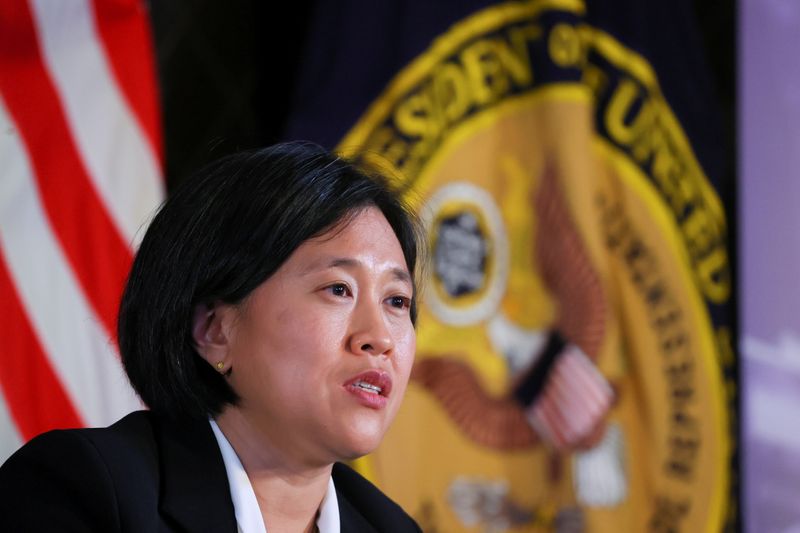By David Lawder
WASHINGTON (Reuters) -The U.S. Trade Representative said on Tuesday she supported updating U.S. trade laws to combat circumvention of existing anti-dumping and anti-subsidy duties, including tools aimed at subsidized Chinese investment in steel production elsewhere in southeast Asia.
Katherine Tai made the remarks in Washington to U.S. steel industry executives, who gave her a standing ovation after reaching a new metals quota deal https://www.reuters.com/world/us-eu-expected-announce-deal-ending-steel-aluminum-tariff-dispute-sources-say-2021-10-30 with the European Union that ends a longstanding tariff dispute.
"We just need more tools and they need to fit the purpose. Because the tools that we have, we know how they can be effective and we know where the limitations are," Tai said, adding that she wanted to create a new level playing field.
Asked whether such tools could be used to deal with China's subsidization of plants in other countries through its Belt and Road initiative that are not currently subject to punitive U.S. tariffs, Tai replied: "Yes."

Tai said the U.S.-EU steel trade agreement https://www.reuters.com/business/aerospace-defense/eu-us-end-clash-over-steel-aluminium-tariffs-work-global-deal-2021-10-31 will help address excess metals capacity from China by preventing "leakage" of Chinese steel and aluminum into the U.S. market.
"The U.S. and the EU will analyze the volume of steel and aluminum imports from the EU each year, share information and best practices on trade remedies, and ensure that products from non-market economies do not benefit from the arrangement," Tai said.